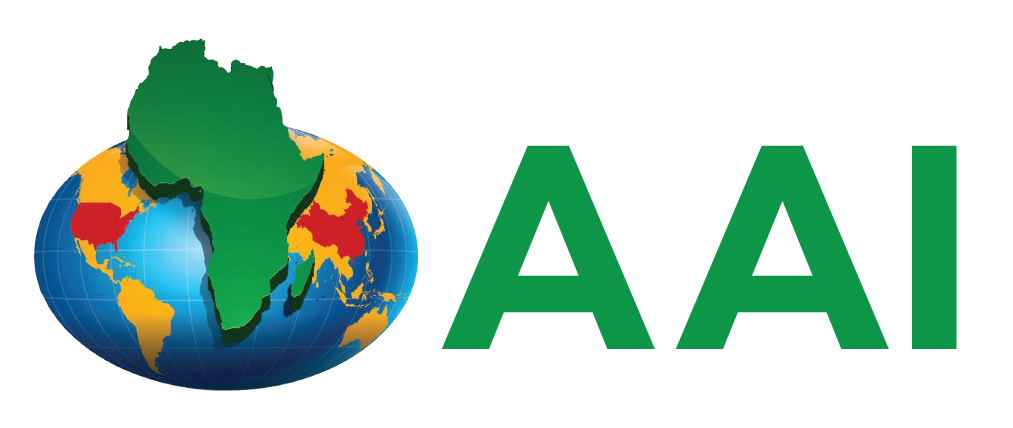Initiatives
AAI seeks to support the betterment of people of African descent through entrepreneurial ideas, economic planning, social improvements and political strengthening. We support any third-party organisations and movements that seek to support these ideals.
Africa Awake Initiative’s vision for sustainable Africa through agriculture and animal husbandry
Agriculture and animal husbandry are two of the pathways in which AAI intends to raise the profile of Africa and her people.
It is noteworthy that African youths are languishing through poor leadership, there are critical unemployment issues throughout Africa with little or no opportunities for them. According to the World Bank, and the United Nation, 60% of African youths are unemployed with girls fairing worse than the boys. Some of these youths are in most instances highly educated with very few prospects of gaining employment in arears of their qualifications.
Therefore, many the youths believe that they have no option other than to take the risk of traversing the Sahara Desert only to die a harsh death, and those who survived either end up in a slave market in Libya or die in the Mediterranean Sea in an attempt to cross over to Europe.
Furthermore, there is a direct link between youth unemployment, with membership of radical/terrorist groups. According to a figure published by the World Bank, 40% of the membership of these rebel groups are made up of unemployed youths. This is a terrible statistic.
The inability to feed oneself is a driving force for many issues in Africa. It is equally noteworthy that food insecurity is a contributory key factor in the mass exodus of African youths from Africa. According to a paper from the University of Western Cape, 10.3% of children aged 1-9 in South Africa are underweight and 21.6% of the children are stunted in growth.
At AAI we recognise that whilst we cannot immediately solve all of the problems identified above, we can start by taking on the issue of youth unemployment and food insecurity.
Our current situation is that a generous donor has made available to AAI a parcel of land in Nigeria for the purpose of farming. Whilst this parcel of land is given to AAI on loan however, it is a very good starting point.
It is the aim of AAI to acquire lands in African regions with the purpose of establishing agricultural schools to teach the youths sustainable farming and animal husbandry.
It is also our aim to employ and assist with repatriation of Agriculturist from descendants of enslaved Africans to teach in these Agricultural institutions situated on the continent of Africa.
Once the students graduate, those who wish, could form a co-operative whereby they could produce and add value to their produce before sale.
We envisage that by so doing we can in our own small way contribute towards the terrible issues of hunger and mass unemployment amongst the youth of Africa.
Agenda 2063
In June 2015, the African Union (AU) adopted the third document of Agenda 2063 in South Africa, the following earlier adoption of the two other documents during an AU summit held at Addis Ababa in January 2015. These three documents collectively are known as the Agenda 2063 Framework.
The Agenda 2063 Framework document consists of its Popular Version, and the First Ten-Year Implementation Plan. The First Ten-Year Implementation Plan consist of goals, priority areas, targets, indicative implementation strategies as well as flagship projects. Some of the flagship projects have already begun to take place in Member States.
Agenda 2063 is a fifty-year pan-African shared framework for growth and sustainable development throughout the continent. This is a blueprint for unity, self-determination, freedom, collective progress and prosperity under an umbrella of pan-Africanism and the rebirth of the Africa and its people, both in the motherland and the diaspora. The emphasis of Agenda 2063 is building an integrated, prosperous and peaceful Africa lead and managed by Africans in the international arena.
The AU by formulating the Agenda 2063, intend to harness Africa’s abundant natural and cultural resources to develop a people-centred geopolitical growth and development, by galvanizing and uniting all Africans, building bridges within African Countries in order to achieve a united state of Africa, an Africa without boarders or frontier.
The Agenda 2063 is a rolling long-term plan intended to enable Africa take stock of its past performances learn from them, and through these lenses of failures and successes, set achievable goals and targets to raise up Africa to become a global economic, political and cultural powerhouse. The Agenda 2063 plan is arranged in the order of short-term, medium-term and long-term achievable bit size goals modelled around other successful countries strategies, countries such as China. The plan is a tripodal levels i.e., the national level (responsible for implementing key activities under Agenda 2063), regional level (RECs) (will serve as the bulwark or if you prefer fulcrum for the implementation at the Member state level) and Continental level (AU Organs), (will be responsible for setting the framework, implementing, monitoring and evaluating based on inputs from the Reginal level.
It is the intention of the AU to lift Africans both in the diaspora and within the continent out of poverty. Through the Agenda 2063, the AU believes that the time is right because of changes within the global context such as Globalization, information technology revolution all which have provided unprecedented opportunities for countries with the right political and economic policies to lift their people out of poverty and improve huge chunk of their populations’ prospects. The AU envisages an African continent unhindered by poverty and with an economic growth and trade so expansive to equal those of the USA, China, the EU etc.

